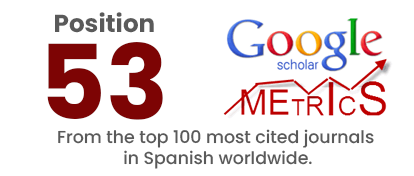Sports journalism and the role of academic training in the digital era in Ecuador
DOI:
https://doi.org/10.36097/rsan.v1i57.2549Keywords:
Formación profesional; Información; Influencia social; Investigación; Periodismo deportivo.Abstract
It has been questioned how Ecuadorian sports journalists perceive the influence of their academic preparation, or lack thereof, on their ability to innovate and adapt to new forms of communication and technology in the present digital age. For this reason, this research aimed to analyze the perceptions of sports journalists about the role of academic preparation in the face of the challenges and opportunities of the digital era in Ecuador. Research was carried out with a mixed, exploratory, descriptive and explanatory approach, its design was transectional and non-experimental. A documentary review was carried out and surveys were applied through a questionnaire. The results showed the main factors that are changing the production of sports content and how these are related to skills that must be acquired through academic preparation. The competencies that are considered essential for sports journalists in the current context were determined, highlighting the importance of adaptability and preparation to face the challenges of the digital era.
Downloads
References
Arias, F. (2006). El proyecto de investigación. Introducción a la metodología científica (6ª ed). Editorial Episteme. https://tauniversity.org/sites/default/files/libro_el_proyecto_de_investigacion_de_fidias_g_arias.pdf
Barahona, J. K. V., Cedeño, K. L., Santillán, J. O. V., & Correa, D. J. (2018). Los retos del periodismo ecuatoriano y los desafíos en la formación de nuevos profesionales. Innova Research Journal, 3(9), 190-202. https://dialnet.unirioja.es/servlet/articulo?codigo=6778120
Bustamante, J. (2006). Desafíos para la formación universitaria en periodismo televisivo. Educere, 10(32), 115-120.http://ve.scielo.org/scielo.php?script=sci_arttext&pid=S1316-49102006000100016
Castillo, A. (2020). La formación de comunicadores sociales, cambios curriculares en la licenciatura en comunicación social en la Universidad Nacional de Matanza (UNLAM). [Tesis de Maestría, Facultad Latinoamericana de Ciencias Sociales, Argentina] Repositorio Institucional Facultad Latinoamericana de Ciencias Sociales. https://repositorio.flacsoandes.edu.ec/bitstream/10469/17227/2/TFLACSO-2020ASC.pdf
Cebrián, M. (1998). Información televisiva: mediaciones, contenidos, expresión y programación. Síntesis https://dialnet.unirioja.es/servlet/libro?codigo=56254
Cruz, J. (2019). Competencias y metacompetencias de los periodistas digitales. Uru: Revista de Comunicación y Cultura, (3), 54-67. https://doi.org/10.32719/26312514.2020.3.5
Escudero, J. (2009). Las competencias profesionales y la formación universitaria: posibilidades y riesgos. Revista de Docencia Universitaria, (16): 65-82. https://www.redalyc.org/pdf/1350/135012677005.pdf
García, J. & Barranquero, A. (2014). La formación universitaria en periodismo. ¿Mera capacitación tecnológica o una formación integral en el nuevo ecosistema informativo? Historia y Comunicación Social, 19, 641-651. http://dx.doi.org/10.5209/rev_HICS.2014.v19.44991
López, F. Rodríguez, J. & Rodríguez, I. (2019). Periodística como disciplina universitaria en España: una propuesta. Palabra Clave, 23(3). https://doi.org/10.5294/pacla.2020.23.3.6
Moreira, T. (2020). Roles y funciones de periodistas y medios de comunicación, como métodos de motivación profesional, en la sociedad del conocimiento. Revista Científica FIPCAEC, 5(3), 464-500. https://fipcaec.com/index.php/fipcaec/article/view/247/415
Rodrigo, M. & Cerqueira, L. (2019). Periodismo, ética y posverdad. Cuadernos. info, (44), 225-239. http://dx.doi.org/10.7764/cdi.44.1418
Sánchez, M. (2015). Metodología de investigación en pedagogía social (Avance cualitativo y modelos mixtos). Pedagogía Social. Revista Interuniversitaria, 26, 21-34. https://www.redalyc.org/pdf/1350/135043653001.pdf
Sloan, W. (1990). Makers of the media mind: Journalism educators and their. Lawrence Erlbaum.
Villanueva, J. K., Cedeño, K. L., Santillán, J. O. V., & Correa, D. J. (2018). Los retos del periodismo ecuatoriano y los desafíos en la formación de nuevos profesionales. Innova Research Journal, 3(9), 190-202. https://dialnet.unirioja.es/servlet/articulo?codigo=6778120
Ventura, R. Roca, C. & Corral, A. (2018). Comunicación Digital Interactiva: valoración de profesionales, docentes y estudiantes del área de la comunicación sobre las competencias académicas y los perfiles profesionales. Revista Latina de Comunicación Social, 73, 331-351. https://doi.org/10.4185/RLCS-2018-1258
Downloads
Published
How to Cite
Issue
Section
License
Copyright (c) 2024 Ramon Morales Verduga, Mario Junior Cedeño Bravo

This work is licensed under a Creative Commons Attribution-NonCommercial-NoDerivatives 4.0 International License.


















